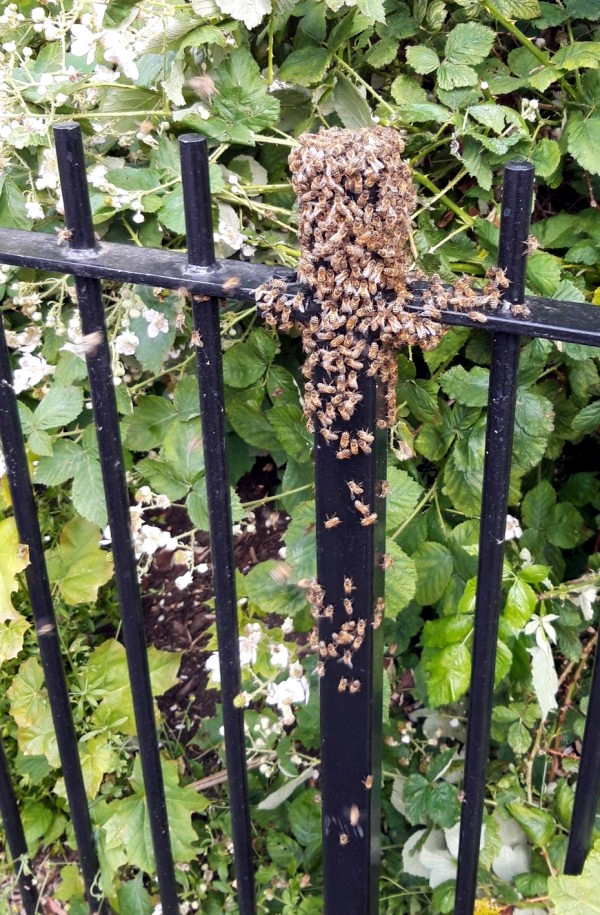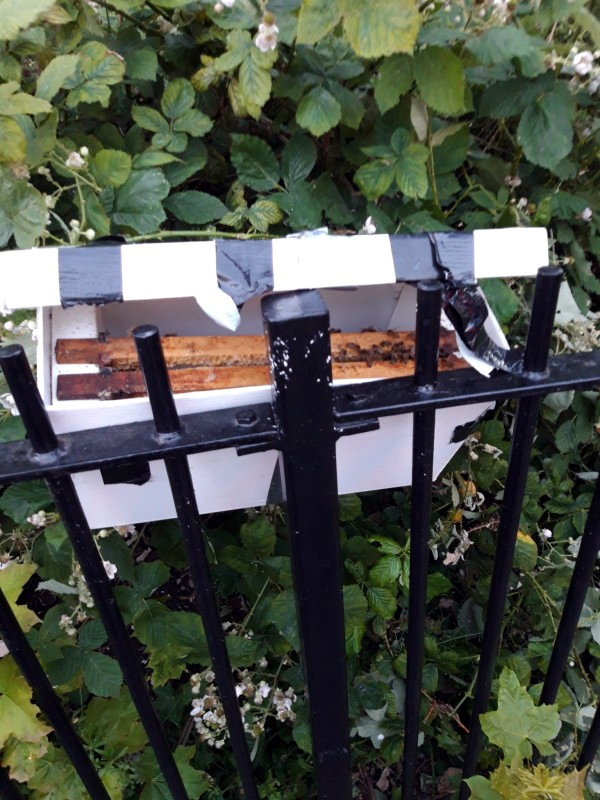BS5 bees
Generally one only notices bees in the inner city in ones and twos. However, bees establish new colonies by swarms consisting of a queen and legions of workers (her daughters). On Monday your ‘umble scribe spotted this swarm in Chaplin Road in Bristol’s inner city.

A neighbour informed me that a beekeeper was supposed to have turned up the previous evening to deal with them. S/he had evidently paid a visit by beer o’clock when your correspondent ventured forth for a pint.

The bees have entered the box with the hive frames, presumably after the queen was first located and transferred to the box by the beekeeper.
Bees have long been renowned for their industry. In Old English (aka Anglo-Saxon Ed.) the eponymous hero of Beowulf has beo (i.e. bee) as the first syllable of his name; when coupled with wulf (i.e wolf, predator), this implies Beowulf was a very busy and ultimately successful hunter. In medieval times, bees themselves were regarded as a potent symbol of chastity in Christianity, whilst in Islam, honey was believed to have spiritual and physical healing powers. These religious and cultural beliefs encouraged beekeeping on a vast scale among landowners and peasants alike.
Coming up to the 18th century, the English poet, painter and printmaker William Blake wrote the following of bees in his “The Marriage of Heaven and Hell“:The busy bee has no time for sorrow.
And finally on busy bees, from the 18th to the 20th century and the late Arthur Askey.